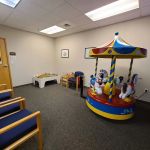Does Going to the Dentist Break Your Fast? Understanding the Rules
As someone who’s often concerned about maintaining my fast during religious observances, I’ve found myself questioning the impact of various activities on my fast. One of the questions I had to look into more carefully was whether visiting the dentist while fasting would break my fast. I know that fasting is a time for spiritual reflection and self-discipline, but sometimes, we have to balance these spiritual practices with real-life needs, like dental appointments. If you’re wondering whether going to the dentist breaks your fast, you're not alone. In this article, I’ll break down everything you need to know based on my research, personal experiences, and the insights I’ve gathered over time.
1. Understanding Fasting: The Basics
Before delving into whether a dental visit can break your fast, it’s important to understand the basic rules of fasting, particularly in the context of religious practices like Ramadan for Muslims or other fasting traditions. Generally, fasting involves abstaining from eating, drinking, and other physical needs from dawn until sunset. This includes not consuming any food or drink, including water. Fasting is meant to be a practice of self-discipline and spiritual purification.
While fasting, some activities, such as eating or drinking, are explicitly prohibited, while others may seem less clear-cut, such as dental visits. The question arises: does visiting the dentist—especially for procedures that may involve the mouth—invalidate a fast?
2. Dental Procedures and Their Impact on Fasting
When I first thought about this question, I imagined that any activity involving the mouth would automatically break my fast. But after talking to religious scholars and reviewing trusted sources, I learned that it’s not necessarily so simple. The key factor to consider is what happens during the visit.
For example, if you’re going to the dentist for a routine check-up or cleaning, most of the time, this will not break your fast. The dentist will likely be working on your teeth, gums, and mouth, but no food or drink is consumed. The main concern is whether anything goes inside the body that could invalidate the fast, such as swallowing water or medications during the procedure.
If the dentist needs to use water to rinse or perform a cleaning, you may be asked to spit out the water. As long as nothing is ingested, fasting typically remains valid. However, if you end up swallowing any substance, such as a liquid or even water, that could break your fast, and you’d need to make up for it later, depending on your fasting rules.
3. Specific Procedures and Their Effect on Fasting
Some dental procedures are more involved and may require the administration of anesthesia, sedatives, or other substances that are ingested or absorbed. I’ve had a few dental procedures myself where anesthesia was applied, and I was given medications post-procedure. This leads to the important question: can these things break your fast?
Generally speaking, receiving anesthesia or sedatives for dental work doesn't break your fast because you’re not intentionally ingesting food or drink. However, I’ve learned that the key factor is the method of administration. If the medication or anesthesia is delivered via injection or applied topically (e.g., numbing gel), it typically does not invalidate your fast because nothing is ingested orally. However, if you were to swallow anything during the procedure or in the recovery process, it would break the fast.
In cases where you’re prescribed medications after a procedure, as long as the medication is taken orally, it can break your fast. It’s best to schedule procedures or take medications outside of fasting hours if that’s a concern for you.
4. The Importance of Timing: When to Book Your Appointment
One of the practical tips I’ve learned is to plan dental visits around your fasting schedule. If you're fasting during daylight hours, it might be best to book your dentist appointment either before dawn or after sunset. That way, you won’t have to worry about inadvertently breaking your fast due to any medications or liquids administered during the visit.
If you must schedule during fasting hours, communicate clearly with your dentist. Ask whether it’s possible to have procedures done in a way that minimizes the risk of breaking your fast. Many dentists are understanding of these concerns, and some may offer flexible scheduling or work with you to ensure that you’re comfortable throughout the process.
5. The Role of Personal Beliefs and Traditions
Every person’s approach to fasting may differ depending on their religious or spiritual beliefs, which is something I’ve personally realized after discussing the topic with people from various faith traditions. While some believe that even the slightest thing, like swallowing a small amount of liquid, invalidates the fast, others may have a more lenient view.
For example, in some traditions, if water or medication is administered but not intentionally swallowed, the fast may still be considered valid. It’s essential to understand the guidelines of your specific faith or tradition. I’ve found that speaking with a knowledgeable religious leader or scholar can provide clarity and guidance on how best to navigate medical appointments, including dental visits, while fasting.
6. Tips for Managing Dental Visits While Fasting
If you’re concerned about how a dental visit may affect your fast, here are a few tips I’ve found helpful:
- Schedule appointments outside fasting hours: Whenever possible, book your dentist visit either before dawn or after sunset to avoid any concerns about ingesting substances.
- Stay hydrated: If your fasting allows for drinking before or after the appointment, make sure to hydrate well to avoid any discomfort during your visit.
- Communicate with your dentist: Be sure to inform your dentist about your fasting schedule, so they can help accommodate your needs and adjust the procedure if necessary.
- Avoid swallowing anything: During your dental visit, be cautious not to swallow water, medication, or anything else that might break your fast.
In the end, whether going to the dentist breaks your fast really depends on the nature of the procedure and your specific fasting practices. For most routine dental visits, fasting remains intact as long as you don’t ingest anything. By planning ahead and knowing what to expect, you can ensure that both your dental health and fasting commitments are well taken care of. For more guidance on fasting and maintaining your health, visit Dentistry Toothtruth for expert advice.







 Dental Solutions of Deptford4.0 (647 review)
Dental Solutions of Deptford4.0 (647 review) South Hill Children's Dentistry4.0 (44 review)
South Hill Children's Dentistry4.0 (44 review) Dr. Joseph V. Esposito, DDS0.0 (0 review)
Dr. Joseph V. Esposito, DDS0.0 (0 review) Dresher Family Dental Care4.0 (254 review)
Dresher Family Dental Care4.0 (254 review) Premier Dental Center4.0 (324 review)
Premier Dental Center4.0 (324 review) Cornerstone Endodontics4.0 (288 review)
Cornerstone Endodontics4.0 (288 review) The Importance of Oral Health Education During Pregnancy for a Healthy Pregnancy
The Importance of Oral Health Education During Pregnancy for a Healthy Pregnancy Best Tips for Brushing Your Teeth Properly for Healthy Gums: Essential Techniques for Oral Health
Best Tips for Brushing Your Teeth Properly for Healthy Gums: Essential Techniques for Oral Health Why Skipping Dental Checkups Can Lead to Bigger Oral Health Problems
Why Skipping Dental Checkups Can Lead to Bigger Oral Health Problems Advantages of Porcelain Dental Restorations
Advantages of Porcelain Dental Restorations How Can Diabetes Cause Tooth and Gum Problems? Preventing and Managing Oral Health Issues
How Can Diabetes Cause Tooth and Gum Problems? Preventing and Managing Oral Health Issues Healthy Habits for Promoting Good Oral Health and Hygiene: Tips for a Healthy Smile
Healthy Habits for Promoting Good Oral Health and Hygiene: Tips for a Healthy Smile